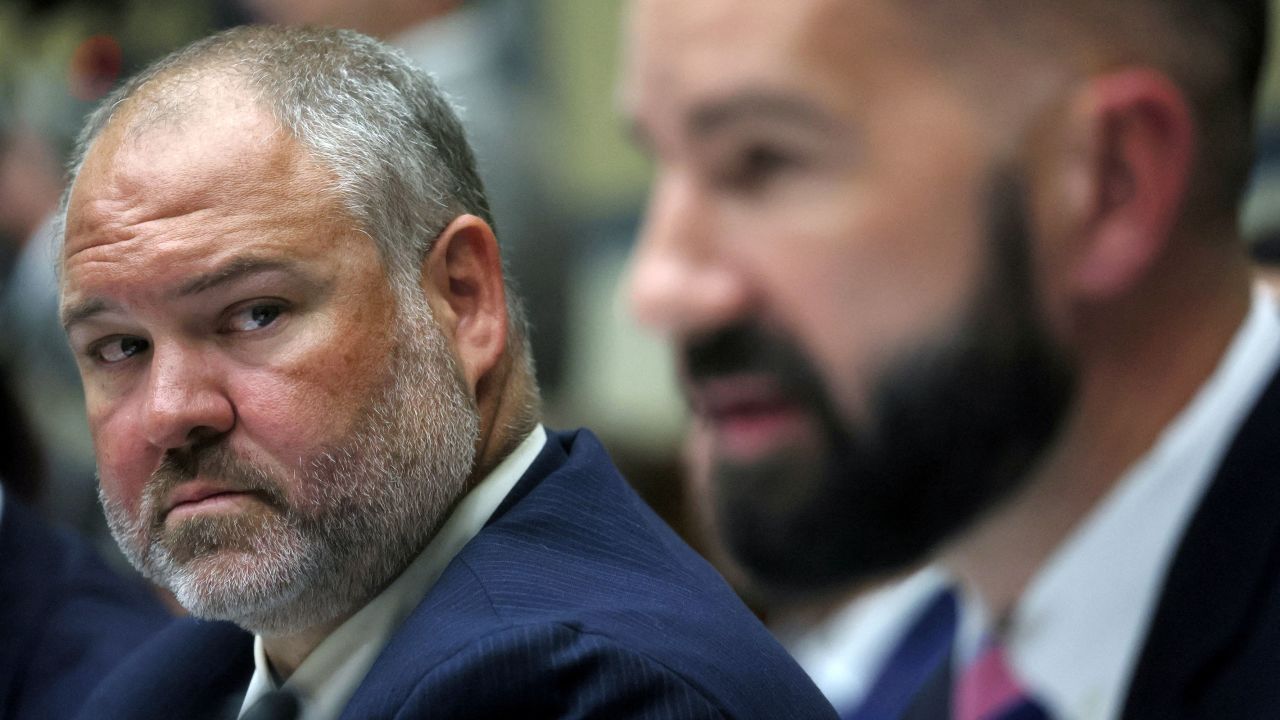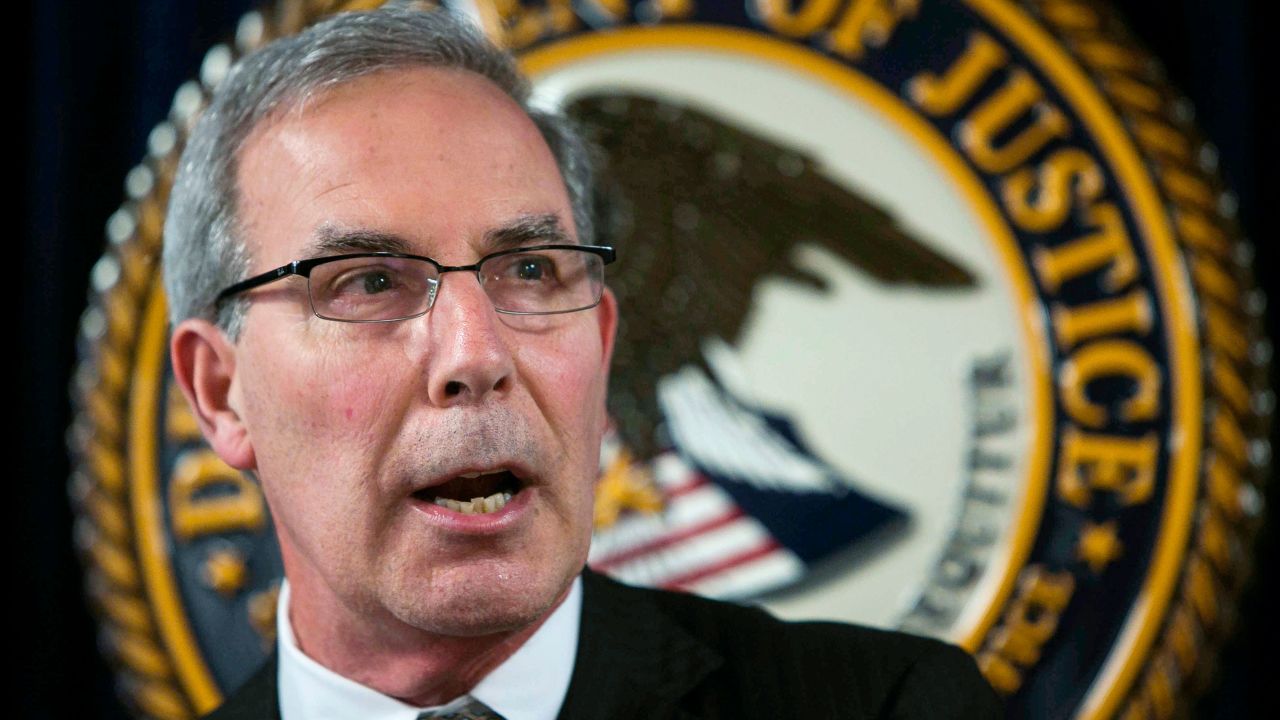
Washington
CNN
—
New testimony from a number of FBI and Internal Revenue Service officials casts doubt on key claims from an IRS whistleblower who alleges there was political interference in the federal criminal investigation of Hunter Biden’s taxes.
According to transcripts provided to CNN, several FBI and IRS officials brought in for closed-door testimony by House Republicans in recent days said they don’t remember US Attorney David Weiss saying that he lacked the authority to decide whether to bring charges against the president’s son, or that Weiss said he had been denied a request for special counsel status.
Those twin claims, made by IRS whistleblower Gary Shapley, form the basis of Republican accusations that the Justice Department’s investigation into Biden’s taxes was tainted by political influence and that Weiss and Attorney General Merrick Garland tried to protect Hunter Biden in the investigation.
The new testimony comes as House Republicans begin an impeachment inquiry into President Joe Biden and his family, potentially undercutting one element of that effort.
At issue is an October 2022 meeting between prosecutors and case agents working on the Hunter Biden investigation. Shapley alleges that during that meeting, Weiss, the then-US attorney for Delaware, told participants that he was “not the deciding person” on whether Hunter Biden was charged, according to Shapley’s notes from the meeting. House Republicans have taken that to mean Weiss was not in charge of his own investigation, and was deferring to a higher authority.
In addition to Shapley and Weiss, there were five others in that meeting, three of whom have recently testified to the Republican-led congressional committees now spearheading the impeachment inquiry.
While the witnesses disputed Shapley’s key allegations from that meeting, they acknowledged Weiss was having trouble finding a venue to bring charges against the president’s son, as US attorneys from other states rejected partnering on the case. They also expressed frustration with the pace of the probe, which at that point had been ongoing for roughly four years.
In June, Weiss reached a plea deal with Hunter Biden on tax and gun charges. But the deal fell apart amid scrutiny from a judge, and Weiss subsequently requested special counsel status. Last week, Hunter Biden was indicted on the gun charges.
Republicans are expected to pepper Garland with questions about Weiss’ plea agreement and special counsel status when he appears before the House Judiciary Committee on Wednesday.
The Republican-led House Oversight Committee, which has been investigating Hunter Biden’s business dealings, is planning its first impeachment inquiry hearing next Thursday.
Attorneys for Shapley have argued that he took contemporaneous notes of the October 2022 meeting and that he sent an email to his supervisors memorializing the meeting after it happened, while others in the room did not do so.
Shapley, a 14-year IRS veteran who oversaw parts of the Hunter Biden probe, alleged in testimony to Congress there was political interference in the investigation. He and the entire IRS team were later removed from the probe as Weiss neared a charging decision.
“I am alleging, with evidence, that DOJ provided preferential treatment, slow-walked the investigation, did nothing to avoid obvious conflicts of interest in this investigation,” Shapley told lawmakers in his closed-door testimony in May.

In letters to the House Judiciary Committee, Weiss has pushed back on Shapley’s allegations, including that he was denied special counsel status in October 2022. Weiss wrote that he had not even asked for a special counsel designation at that point, and that he had discussions with the DOJ about filing charges outside of his district.
In their recent testimony, the other FBI and IRS officials in the October 2022 meeting have supported Weiss’s version of events on several key points of contention, particularly his allegation that Weiss said he was “not the deciding person” on whether to bring charges.
“I do not remember – I don’t – he didn’t say that. In my recollection, if he would have said that, I would have remembered it,” Thomas Sobocinski, the special agent in charge of the FBI’s Baltimore field office, told the committee.
“I do not recall that ever being said,” said Darrell Waldon, who was previously Shapley’s boss as the IRS special agent in charge of the Washington, DC, field office overseeing criminal investigations.
“I don’t remember him saying that,” said Ryeshia Holley, an assistant special agent in charge with the FBI, who added she thought Shapley may have been confused or misunderstood what transpired at the meeting.
Last week, CNN and others reported on Sobocinski’s testimony, which prompted Shapley’s attorneys to dispute his recollection of the October 2022 meeting.
“Mr. Sobocinski apparently acknowledged that he took no notes in the meeting, nor did he document it in any contemporaneous fashion afterwards,” attorney Mark Lytle and Tristan Leavitt, president of Empower Oversight, a nonprofit group that represents whistleblowers, wrote in a letter to the House Judiciary Committee. “By contrast, [supervisory special agent] Shapley took notes during the meeting.”
Shapley alleged Weiss requested Special Counsel status in 2022 and was denied
When emailing his supervisor about the October 2022 meeting later the same day, Shapley claimed that Weiss stated he requested special counsel authority, and that the Justice Department “denied his request and told him to follow the process.”
Waldon responded to the 2022 email at the time by saying, “thanks, Gary. You covered it all.”
But when pressed by committee investigators earlier about it this month, Waldon said, “I agreed that he covered it all, but, in terms of the word ‘special counsel’ being requested, I don’t recall those words being used.”
Both Holley and Sobocinski also said they did not remember Weiss bringing up any discussion of special counsel authority during the meeting.
Since, Shapley’s allegation came to light in June, Weiss has told Congress that he had never requested special counsel status, but rather explored becoming a “special attorney” under a different statute.
After Hunter Biden’s plea deal fell apart, Weiss did request and was granted special counsel status. Weiss has offered to testify to Congress, but securing that testimony is more difficult now that he is a special counsel overseeing the ongoing criminal probe.
While the testimony from the trio of FBI and IRS officials complicates the allegations from the IRS whistleblower, it’s not the final word on the matter in the House GOP probe. Congressional investigators have also heard from Waldon’s supervisor, Michael Batdorf, who was not in the October 2022 meeting, and a source tells CNN they’ve subpoenaed two more officials from DOJ’s tax division involved in Hunter Biden’s criminal case: Mark Daly and Jack Morgan.
Though they contested Shapley’s claims that Weiss said he had been denied special counsel status, they did confirm that Weiss said he had been rejected when he tried to partner with US attorneys in Washington, DC, and California in order to bring a potential case there.
But the other officials contended that didn’t mean Weiss couldn’t bring a case there if he chose.
“I believe Mr. Weiss said that the case was presented and they did not agree to join or take on the case,” Waldon said of a discussion about the US attorney in Washington, DC, adding that he didn’t take it to mean a case couldn’t be brought there.

“I didn’t understand that, that the case was declined – just that they were not going to be a partner on the case,” Waldon added. “The case was still able to move forward.”
Shapley also said that Weiss disclosed at the meeting he was not planning on bringing charges over Hunter Biden’s tax years of 2014 and 2015, due to the statute of limitations expiring.
The FBI and IRS officials said they had no reason to dispute Shapley’s assertions on the tax years, which cover Hunter Biden’s time on the board of Ukrainian energy firm Burisma, a key part of House Republicans’ allegations surrounding Hunter Biden’s business dealings.
“I remember overall charges for being a conversation in the sense that that is something that they are still deciding,” Holley said. “I don’t remember if it was stated at this meeting that that was not – those tax years were not going to be charged. I just know that, again, those tax years and others were part of the overall discussions.”
Testimony on Shapley’s character and recollections
Holley said her experience working with Shapley was “very limited,” but she did not have any reason to believe he lied.
“I have no reason to believe that Mr. Shapley is not being truthful. But at the same time, my understanding and recollection is different than his as noted in this document,” Holley said.
Instead, Holley told committee investigators she believes Shapley was confused about what transpired in the meeting.
“Of my understanding, as well as my recollection of the meeting, I definitely think there is either some confusion or misunderstanding in things that were communicated,” Holley said.
Waldon told the panel that he recommended to Batdorf that Shapley be removed from the case. Waldon said that Weiss told him after the October 2022 meeting that he would “not be talking with Mr. Shapley henceforth, as they were going through their deliberative process.”
“Before I left the special agent in charge position, in February, I recommended to Mr. Batdorf that Gary Shapley be removed as the [supervisory special agent] from the Hunter Biden investigation, primarily due to what I perceived to be unsubstantiated allegations about motive, intent, bias” Waldon said.
“When I left, Mr. Shapley was still on the case, and as I understand it, was on it until May. So in my mind, my recommendation was just that, a recommendation,” he said.
